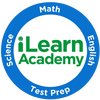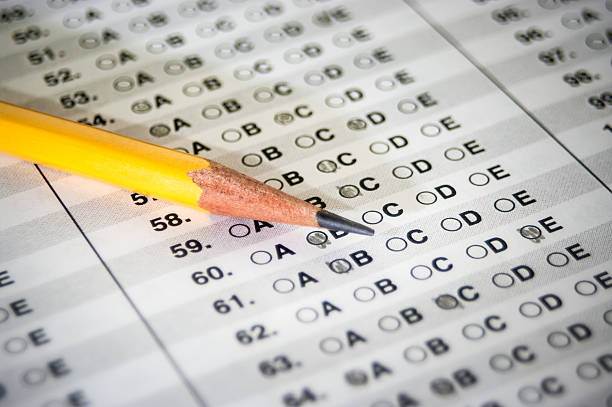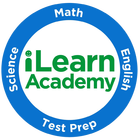|
As a tutor, a large part of what I do is prepare students for the SAT or ACT, two standardized tests used for college admissions.
Typically, students have a limited amount of time to prepare for these tests. As such, they’re always asking which test they should focus on – the ACT or the SAT. My answer to them is simple: Unless a student initially performs markedly better on an SAT than an ACT, he or she should prepare for the ACT. I believe that preparing for the ACT is more helpful than preparing for the SAT because the structure and format of the ACT is more predictable. However, students must decide for themselves based off their test-taking performances and desired colleges. Here are some things to consider as you or your student decides whether to focus on the ACT or SAT: Take a Practice Test The first thing any student should do when deciding between the SAT and ACT is take a practice exam for each. There are many free online and paper practice tests for both the SAT and ACT. Once a student has taken both, she can compare the scale scores for both tests. Scale scores measure aptitude by percentile (the percent of test-takers a student did as well as or better than). If the scale score for one test is significantly higher than the other, that student should prepare for the test on which they scored the highest. If the scale scores are similar (within 5 percentile points of one another), students should prepare for the ACT. The most accessible SAT tests can be found here. ACT tests can be found here. Either test can be taken online or printed out. Why it is Tougher to Prepare for the SAT Preparing for an SAT is not impossible – it's just harder. The writers of the SAT, the College Board, reformatted the structure and timing of SAT passages, as well as the way the test is scored, at the end of the '16/'17 school year. Because this change was so recent, there aren't many trusted materials in the new format. The skills being tested have not changed, so students can still confidently prepare for the content of the SAT. However, working on timing and measuring score progress is harder. In contrast, the ACT has been virtually the same for more than 20 years with no large changes. For example, the ACT recently adjusted the science portion from seven to six passages and added a new type of passage to the reading section. However, the number of questions and the way the test is scored remains the same. Because the ACT is so consistent, it’s much easier to give students concrete goals. We can look up what scores they will need to get into the colleges of their choice. We can find out exactly how many questions students need to get correct in order to reach that score. We also can find ample materials in the correct format, so students can practice timing and strategy for years before test day, if they wish. All of this precision helps students build confidence. Other Test Prep Tips Students should not prepare for both tests at the same time. If a student must take both an ACT and SAT, I suggest working on them in sequence. First prepare for the ACT, then move on to SAT. The ACT and SAT have very similar content. Once a student has prepared for an ACT, he should know nearly everything that would show up on an SAT. The student will simply have to get used to a different format and timing structure to get ready for an SAT. Students and tutors should try to use materials that were printed in 2017 or later. In Summation If a student is unsure where he’d like to attend college, it can be tough to decide which test to take. Practice tests are a great way to identify which test plays to a student’s strengths. The ACT is more straightforward and has more practice material at the ready, so I suggest starting there. Luckily, once a student prepares for the ACT, he will be better prepared to take the SAT, as well, should he decide to. When in doubt, take both tests. That way, students will be ready to put their best foot forward no matter which test a college prefers. To increase your score with iLearn Academy's proven ACT and SAT test-prep programs, sign up for a diagnostic pre-test today.
0 Comments
In 1951, legendary radio host Edward R. Murrow launched a series asking listeners to share their most fundamental beliefs about humanity and the world around them.
Dozens of leading cultural, political and literary figures of the 1950s contributed their thoughts to the program, and listeners across the nation tuned in. Although Murrow stated many were skeptical that any meaningful ideas could be articulated in only five minutes on the radio (a concern bowled over by the advent of sound bites and social media), luminaries like Albert Einstein, Helen Keller and Eleanor Roosevelt shared their most personal philosophies and beliefs on the air. Today, the This I Believe project lives on as an opportunity for students to share their values and opinions while honing their writing skills. As part of our summer English curriculum, elementary and middle school students will compose and refine essays about their strongest convictions — whether that’s the value of team sports, the importance of equality or the superiority of chocolate ice cream. At the end of their courses, students will submit their pieces to the This I Believe website. Through this project, students will build their persuasive writing skills and develop their unique writing voices. At iLearn Academy, we believe strong writing skills are important not just for school and work, but for students' personal expression and exploration. We're proud to participate in This I Believe alongside our students. You can browse personal essays from students across the country on the official This I Believe website. To learn more about iLearn Academy's enriching academic programs, view our curriculum. Individualized instruction significantly boosts students’ grades, but the effect on their confidence -- and eventually, their identities -- is even more important. Children develop identities by noticing how they are similar or different from those around them. When a student struggles in school but sees his peers excelling, he often comes to the conclusion: “I’m not smart.” This feeling may stick with him throughout his life and affect his confidence, performance and willingness to try new tasks. Alternatively, when a student works hard to master a new concept or overcome a learning challenge, that victory remains with him and shapes his identity. He starts to see himself as someone who is resourceful, hardworking and capable: “I am smart.” It’s no surprise that the right instructor can make a huge difference not only on a student’s grades, but on his or her life. While many tutoring centers hire college students looking to supplement their incomes, iLearn Academy’s instructors are certified teachers or experts in their given fields. These instructors have extensive experience identifying a student’s needs and delivering tailored instruction. Think back to your favorite teacher from elementary school. Now imagine getting to sit with him or her for an hour or two every week for small-group or individualized instruction. The combination of outstanding teachers and one-on-one attention can completely transform a student’s attitude toward school and learning. Each summer, we see young people eager to return to school. They’re excited to walk into the classroom with the confidence to overcome new challenges. Thank you for giving your child the gift of confidence this summer. We look forward to more victories - large and small - this school year. Are there classes not currently in our curriculum that would benefit your child? Take our 15-second survey and let us know how we can serve you better. My sincere gratitude, Youngah Anderson, Director Many students look forward to sun-filled summers free from books and homework, but this extended break from learning sets many students back.
The average summer learning loss in math and reading for American students amounts to one month per year, according to a report by the RAND Corporation. The negative effects of summer learning loss show up as early as first grade in some students, and it takes up to two months after school starts for students' brain development to get back on track. Summer learning loss can have long-term implications, as well. By the end of sixth grade, students who experience summer learning loss are, on average, two years behind their peers. This learning and achievement gap is daunting. The good news, however, is that summer learning loss is easy to avoid. While summer provides a break from learning in a traditional school environment, it offers countless opportunities for students to grow academically outside the classroom. From pursuing their particular interests to exploring brand new subjects, summer gives students time to build knowledge in fun, stimulating ways. Looking for strategies to combat learning loss while keeping your child's summer fun? Here are five easy ways to weave some learning into those carefree summer days: 1. Add the Library to Your Weekly Routine Reading is the best way for students to keep their brains sharp during summer break. Reading promotes brain development, teaches vocabulary and comprehension, builds empathy and opens students' minds to worlds outside their own. Visit the library each week so your student can pick out a new book. If she's a reluctant reader, try creating a simple incentive program to get her started: When she finishes five books, she gets a small prize. If she can finish 20, she earns an ice cream date with the whole family. Sometimes, her own library card is all the incentive a student needs! 2. Learn from Household Projects Learning doesn't have to involve writing assignments and problem sets. Much of learning is simply developing the ability to think critically and solve problems. What better practice than to complete a project as a family? This could be as simple as baking a cake, assembling a bicycle or building a birdhouse. Walk through the directions together, and let your student guess what step comes next -- or write out all the steps beforehand and let him guess the correct order. This list of 15 kid-friendly household projects can get you started. 3. Visit a Cultural or Historical Site A visit to a local cultural or historical site presents many opportunities to learn. Together, read any signage providing background about the site, and talk about what it might have been like to live during that time period. What would be different? What would be the same? Talk to your child about why cities, states and nations choose to preserve historical sites, and ask for their opinions. There is a huge collection of excellent historical fiction for children and teens. Do a quick search to find any books related to the site or area you're visiting, then read the book together before or after your trip. The same goes for age-appropriate movies and TV shows. 4. Take a Hike Nature is a boundless source for summer learning. Students can study types of plants, animal behavior and ecology simply by spending time outdoors. Take some time to learn about the parks and walking trails in your town. Some parks districts even offer guided hikes for children and families. Here's a list of fun, educational outdoor activities to spark students' curiosity about nature. 5. Invest in a Tutor Summer tutoring keeps your child's academic skills sharp and her mind engaged. Even one hour weekly with a tutor sets students up for success during the year. One-on-one and small-group tutoring not only boosts grades, it builds confidence and helps students feel comfortable confronting new academic challenges. In short, tutoring can affect a student's attitude toward learning for the rest of his or her life. Get the most from your investment by finding a tutoring center with certified teachers, personalized lesson plans and a results-focused approach. With these simple steps, your student will be ready to start the school year strong. iLearn Academy offers two-day-a-week summer academic programs that help students keep math and reading skills sharp. Browse our summer offerings to find a schedule that works for you. |
Categories |
We make a personal commitment to ensure each student is well-prepared for the academic school year.
Dedicated to helping your student succeed.
©
iLearn Academy 2019


 RSS Feed
RSS Feed
